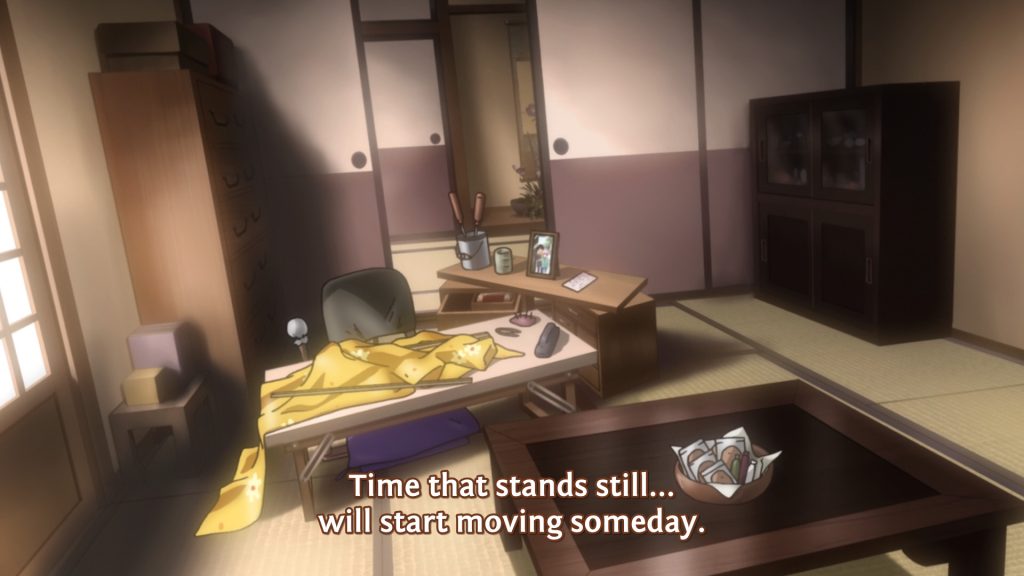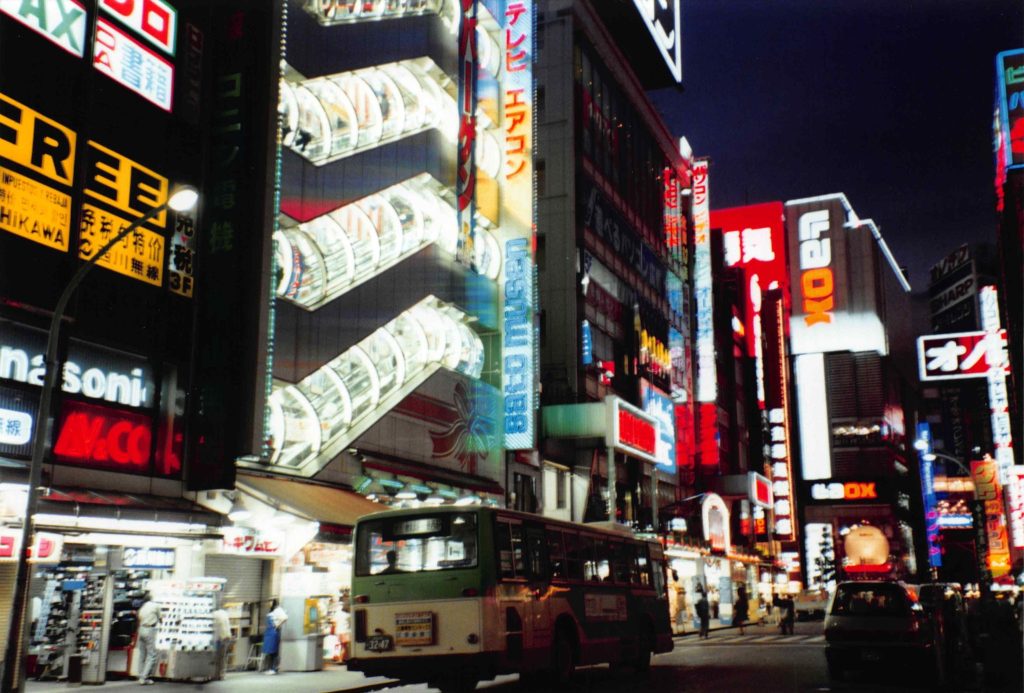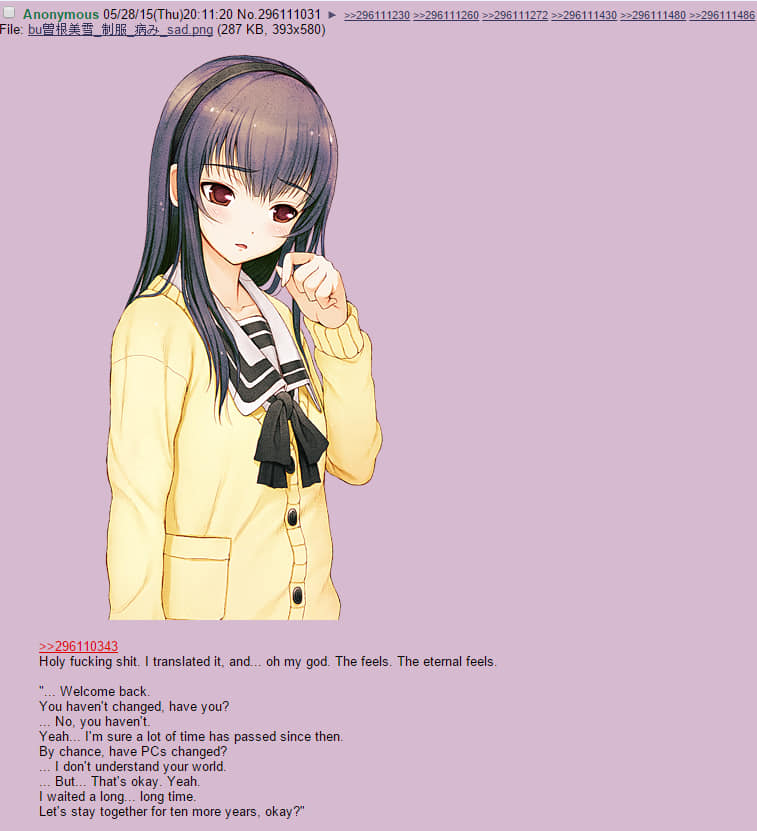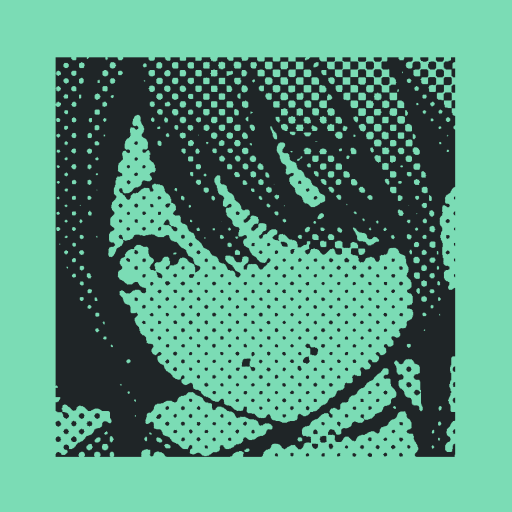I see dead people.
Or at least, I visit the deceased during my occasional strolls on the walls inside buildings. The seriousness of tradition in naturally professional settings, smile-inclined expressions poised towards the camera. The grain of film left its memorabilia over the surface of the photograph, with a date that read “June 8 2004”. Just before the advent of the digital camera’s popularity .
I take a moment to appreciate the product photography of clothing departments, piecing together the poses and expressions of their subjects, the specific science behind how to market fashionable wears and most importantly, my place as the implied voyeur. “I wonder if that woman genuinely enjoyed the colorway of that particular article.” Looking down at the jerica mix tiling under my running shoes, feeling the warmth of a morning sun, I walk away as just another participant.
Browsing altchans, observing photographs of miscellaneous e-girls in their natural habitats, photos positioned in a faux-amateur style, aiming to capture the cinematic assertion of a candid ‘cool’ or ‘coquette’ oblique. Images that escape the maw of search engines, in a terribly publicly-hidden intimacy one could only attain from unhealthy amounts of mania through the LCD screen of a man I will never know. A girl all too pretty surrounded by horror, beyond the bloody noses and Heather Mason cosplays.

Photography, or in the same sense, documentative artifacts, when effectively emphasized, bother me. A mild disgust from my own protrusion of moments I do not own and a melancholic dragging of corpses. It’s a confrontation, not by the subjects photographed, but from the medium in which it’s presented.
To me, all photography is a travesty. The lens of a camera finds something ‘as is’, capturing the real and producing it as something unreal, a static temporality only found in alien technology. It urges the audience to watch in horror, of a time that once was, of the seriousness, the acting, the staging, in its unabated form, constantly challenging the viewers far removed from any sense of relatability.
And at the heart of the chaos, a single flower blooms in a shallow pot. The duration of events moves ever so slightly, petals angle in different directions at every glance. Until, a single leaf floats gently towards the dirt around the pot, eventually disseminating into the limitless all.
The eyes of the dead return the camera’s gaze, through the back of my skull, asking, “What do you see?”.
Indeed, you have been.
Pictures are never taken with sadness in mind, even the cruelest of acts when photographed are activism. The sorrow comes from whether or not that future envisioned by its operator came true.
You may conjunct this horror with the inevitable arrival of ends. Yet, in doing so, you cede to the erosion of your defenses. It is not the static beginnings and ends that mark the trembling, but the permanence of it itself. Truthfully an absurd, irrational fear.
The past cannot be forgotten, the present cannot be remembered, and the future doesn’t exist. To forgo any and all of my information inclined disposition, I find it difficult to parse. I shall look and say, yes, it has, and still I will not accept it and I do not want to accept it.
In and out of my dreams, it remains.
Thus, it strikes me well to see others willfully accepting it as it is(though it would be silly not to) and to denote time and research to the synchronicity of chronos. Eras, Zeitgeists, Epochs of certain events on the timeline of human existence are, of course, absolutely necessary to form any coherent rumination. But the past holds too much bearing.
To further emphasize my musings on time, perhaps an example is in need.
Visual Novels, in comparison to other mediums, is the most “past-oriented” medium in Japanese pop culture. New stuff comes out, sure, but the vast majority of the culture revolves around “catching up” and reading the classics.
Although, most mediums have this same effect as it’s practically the basis of all fields of study. One cannot speak of analysis (in an academic setting, of course) without orienting oneself for what already was.
Philosophy would have you read about thinkers that preceded the contemporaries of a certain branch.
Film is more easily understood from the chronology of a director, as well as viewing the franchise releases in order.
Music would ask much of the same, but with the added inclusion of the affluences of a genre rather than just the static events in time.
Visual Novels have the same sufferings, with the added hardship of reading 80 hour long schizophrenic porn games. But as with everything in the realm of anime, moe has accelerated past the point of no return and the flesh fangs have burrowed far too deep into our consciousness.
The conventions of anime are potent enough to have established very particular settings and concepts. A high school setting, sure. People with superpowers, totally. Really, just anything similar to KyoAni. There are different genres, obviously, but each of them hold particular contentions that make them invariably “anime”. If there wasn’t, then there would be no need to distinguish something as such and everything would frolic in the magical land of mythopoetic expression.
A question that seems to pose in my mind is trying to find the etymology of a trope. Usually, I tie these moe values to important fixtures in time through large franchises and their popularity being the main spread of ideas, but culture inseminates itself through less strict means, ideas do not need to be explicitly presented and they rarely are. But we think in frozen undifferentiated events.
And thus, companies and fan-translators accumulate english text files to appease this niche market. To bring the classics to the masses, the masses being the 100 or so people that make up “VNtwt”. Why? Because they’re classics! That’s why! (And the hard work of artists deserve more praise and accessibility.)
Who even reads Visual Novels anyways?
As I write this, winter’s cold embrace envelopes my room, reminding me that I never got into the habit of plugging in the heater. My body isn’t too important, but the instruments used to express ideas need to remain comfortable enough to continue typing words on a keyboard. On those chilly rides to school, my sister and I used to sit on our own hands to keep them fluid. Still, this isn’t enough and I obviously need my hands right now.
Poetically, the machinery that has transformed me is the only heat-producing object around me, blaring the white light of a text file alongside the twitter timeline on my forsaken drawing tablet.
The sound branding of a now-defunct-company strikes my ears with terrible compression. The movement, the most eye-catching aspect in an otherwise static image, is of twinkling gif files over foreign characters. Sporting “NEW!” additions that were anything but.
Of course, foregrounded in the glitz and grime of obviously fetishistic eroge. Characters and mascots, both non-descript, but appealing to the same gaze as mine.
Following the crescendo, a completely alien conclusion. Dead silence accompanied by the ambience of my small apartment. The mechanical hum of my cooling unit shut softly and the rhythm of my foot’s bounce was made audible once more.
The connection of what-has-been has been severed and all that remains were nice spirits.
ghost hardware
Akihabara is such a wonderful place, isn’t it? The ultimate pilgrimage site for the otaku-minded, a sacred land where we could finally let ambitions loose and charge the streets like mad dogs! Akihabara is
dead, buried, forgotten.
There’s a particular sadness when reading articles circa-2005 regarding the boom of otaku. Excitement foregrounded in electronic components, whence information was a scarcity and members of a particular sect (basic youth culture) would actively seek out one another in praise of one of many peculiar hobbies.
Perhaps, the excitement was in the breakthrough of technology, or at the very least, the basic commercialization of products typically out of reach from basic consumers. The mantra of the Electric City is adaptation and trends, never veering too far into one particular aspect of electronic commodities. But as the ThinkPad became more of a handicap (a rather expensive one, at that) in order to buttress an interesting piece of technology of the past, the trends have only ever damaged the sanctity of what made it “special”. It seems that, at one point or another, the optimism for the future vanished.
Within my highly elite and specialized sources of information, occasionally you find people complaining about what has happened to the otaku and anime culture at large. The fixations vary from basic nationalism (motherland or not) to surface level criticism on power fantasies. Discord servers of 50 or so people still search for people who could “seriously talk about anime”, lest they join a server of normal consumers who casually enjoy the company of JAST releases. However, the search continues as they dismiss the others, in a cyclical fashion, as not representative of a “true” otaku. Possessed by a ghost without will.

I suppose the “future” of otakuism was concluded during its conception. Popular culture has always disseminated into markets with extremely recognisable motifs. During the zeitgeist of the punk-otaku of the early 90s and its loving off shoots of beautiful fighting women, to the insurgence of traumatic postmoe icons of today, we have always been slaves to the times. The only question that remained was “What next?” as long as we kept a close relationship with Love Capitalism, or any other form of monetary consumption. Even Takeshi Kubo couldn’t dream of anything but complete market domination through garage kits (wwww).
Although “otaku” hasn’t died, its namesake simply dispersed into common language. It is not “weeb” nor is it even “nerd”, it is considered just another important aspect of living a life in first world countries. The semantics of “otaku” as counter culture persists within groups that “keep the dream alive”, but for the most part, proper discourse had finally died out in the last decade as the flow of globalization hit the world market. The search is unrewarding because for better or for worse, we are all otaku.
During Felix Guattari’s multiple trips and interviews in Japan, he was heavy handed in his appreciation of what the country stood for. The highly subjective arts, the techno-utopian architecture, and the ultimate deterritorialization of signs and signifiers. Netizens lived and adapted to technology and capitalism rather quickly.
Though this was two decades before the “golden ages” of otaku, I could feel the sands of time ripping tide. It makes me ask, if the pluralistic future he envisioned continues in motion. To that I would say, yes, but not without its hiccups.
The works of Patrick W. Galbraith, in particular “Otaku Spaces” (2012), was written during a time when the dream was still “attainable”. The book found interest in the chaotic expression of the otaku room and subsequently its participants and how that self-identity shapes itself into the overall aesthetics of the city, citing Kaichirō Morikawa’s OTAKU: Persona, Space, City as the forefront of his thesis, as well as eventually serving a grander purpose in his rejection of an ineffable “otaku”, challenging the notion of it’s semantics and returning it to none.
The introduction to the book was pleasant, as Patrick’s works typically are. His musings on how he aims his analysis to otaku is something I still subscribe to today. But aside from the prim and pristine photography and the overall book’s aesthetics (they take a lot from video games from a similar time period, though I immediately denote the PSP), I find the analysis to be lacking. Perhaps a bit ostentatious of me to find issues in his work and use it as a basis of a rather forlorn concept, but it’s not an issue of how he writes nor his usually faulty questioning schemes, the answers presented are far more telling.
Patrick takes a seat back and refrains from pursuing a strict position (as posited by his declaration to exclaim the rhizomatic neural flow of the otaku), allowing the participants in “Otaku” to speak for themselves.
The vast majority of participants in the book are rather… uninformed or uninterested in the investment of their private spaces. The tens of thousands of dollars (converted into USD) amount to a necessity in affirming their identities rather than an explicit event towards a pathic understanding of its phenomenon. Speaking precisely on the objects of obsession and the personal value particular events in time have done to delineate the desire for book shelters. No answers are really provided, it’s almost as simple as what you may assume one might say when confronted about their obsessions. It simply is something they partake in, because this is everything you need. But they could totally tell me everything I wanted to hear about Higurashi.
After the interviews conclude, pictures of familiar places in Akihabara are showcased. Radio Kaikan, Akihabara’s Mandarake, Maid Cafes, and even places like Otome Road. Very well shot pictures, I should add. (I would love to attempt to recreate them on my next trip.) But near them are denotations on their history and why they remain culturally significant, such as Akihabara originally being a place that sold salvaged WW2 technology, which is a rather niche note. Although it doesn’t feel authentic, a phrase that means very little in most cases but here it’s more of a failed aggrandizement than anything else. They read out like tourist guides (which he has written one before), propping the facts on a pedestal that resounds an echo of importance. A need to be emphasized, almost like a romance of two.
If anything, the only thing I have learned aside from historical recounts and eccentric photography, is that the mega complex of the otaku infrastructure has its dream etched into it permanently. Almost symbolic of why we always seem to be haunted by the sounds of cicadas during our late-summer encounters with our delicious objects of affection, with glasses and long bangs, of course.
Time is crashing forth and speeding off every hypothetical plateau. And yet, Akihabara really hasn’t changed. |
A specter is haunting the world—and it takes the shape of a shifting figure of multiplicities, oscillating between archetypes, cute and cool.
the world has turned and left me here
For years, I have been fascinated by the opening song to Unison Shift’s ‘Flyable Heart’. I don’t have any particular memories with the song, but I do remember encountering goreshit’s use of it in ‘fly, heart! fly!’ accompanied by amen breaks and all of 2010’s happy hardcore accouterments.
It is a great song and I listen to it consistently during the years in which I’ve known it. It has all the fun almost Nakata-inspired dense soundscapes that create audible imagery almost as strong as the visual schema of Itou Noizi’s artwork. But there are times where I cannot stand to hear its soft melody and when I cannot bear to gaze at 2010’s moe futurism. The gentle treble of the piano is the siren’s song.
A call to the abyss. It wants me to self-destruct posthaste, the world is not worth living in.

Truth be told, I’ve always been a bit troubled mentally. I’ve seen psychiatrists since I was young, attended anger management courses ad nauseam, and dealt with constant horrific existential ideas complicit with the very nature of “a life”. The goal of being an understanding christian is eternal life. I was helpless in the face of an eternal space, so much so that younger me would sob at the implication of undifferentiated time. Death has always been a safe guarantee, that I at least have something to turn to when I decide there is nothing left to do.
Nostalgia scares me, memories scare me, and I’ve always hated remembering that I have occupied space inside of someone’s head for a time. I do not want to be a slave to time, I have never been able to accept it. Childhood videos bring me to tears, forcing me to confront what-has-been and all of the time that has transpired since. My soul (hypothetical) was captured by a cheap silver Sony camera. Memories of an unabated me wanted to shoot funny videos with my sister. It bothers me, and it bothers me more because of how irrational it is. Because I ache to the rhythm of a ticking clock, I want to be remembered, but I don’t want to be captured.
Ever since, I have been unintentionally living in a lifestyle that would shelter me from horror. I have enough social relations to remain known and noticeable, but not enough to have a close bond with someone else. I feel discomfort in being in a single place too long. I take walks on different paths every time so that I may spread my degradation equally across the land. Nobody knows what’s going on with me and I am a hard person to read.
I’ve always hated when people attempt to dismantle my persona or psychoanalyze me, but I think about this talk a lot. The signs were always there, but nobody, including myself, knew what to do about it. I’ve been planning my suicide for almost a year now, because what better time could there be? I am all alone in a state where not a single soul knows my name and all of my past contacts are so far that I wouldn’t even make a ripple in a lake.
My suicide note has been rewritten multiple times, trying to capture a segment of my soul, paradoxically clashing with my dismay to reminiscing. Hoping that I could at least leave something behind, to have it been known that “Indeed, I have been.” Housing a chronology of my life and a story foregrounded in artifice about the person I thought I was.
But I couldn’t bring myself to do it. I am still far too sane. Even the trips to the mental hospital felt like an act, still keeping smiling and telling them how I planned on doing it. Because there is such a strong level of abstraction from “me” as opposed to “him”. “I” is the one who feels things, the one that carries the weight, the manifest of emotions. “He” is the person who sifts through all of it, pushing out the ways of dealing with it, and he is far too apathetic. Everything is non-serious.
I was prescribed medication for depression, but I refused to continue taking them. Mental Health clinics seem hellbent on returning you to a state of “normalcy”, to remove all of the equitable aspects that give way to ideas and concepts. I irrationally fear many things that could be rebutted logically, but I choose to ruminate them myself rather than ingest a pillow of microscopic needles to stab it out of my brain. Death was simply one conclusion to the answers I sought. I cannot imagine a future where I would rather live than die, and things are better this way.
Expressing it is hard, so even in my most personal writing, I elude larger than life concepts to give “reason” to how I feel. Because I am always at odds with myself.
During my darkest moments, over the edge, contemplating on my “whys” and the consequences of my actions, all of my self-preservation instincts kick in, until I realize that even those barriers were ceded to make way to my nihilistic conclusion. Alstromeria’s title track plays in my mind, always signaling that I need the comfort of commonality and something is seriously wrong with my head. My family members flash in my mind, but they quickly disappear when I remember the years of estrangement. Alas, I live. Passion might be the only thing that keeps me grounded, or at least a hope for a better tomorrow, towards the future. Passion, in what exactly? That’s hard to explain, but I think it’s better that way.
Let’s walk on, so, love ♪
The longing for “the everyday” is a condition arrived during the moments in between work and play. Lifting your head from your phone, looking at the industrial skyline. How wonderous it is to be alive. The smell of fresh linens and the Mourning Dove’s coo. It all seems fascinating and there is no shortage of content bolstering the mélange of ordinary events. Where does it come from and where does it go?
Photographs, Videos, Novels, all leave us within the interplay between nostalgia, melancholy, and mortality. The “everyday” is not merely the actions produced in living a life but the leitmotif for it’s unattainability. The intimacy in memories and hope are rendered extraordinarily distant by the same forces meant to supplement their memorabilia. Everything that is meant to capture an event paradoxically emphasize our own alienation.



Leave a Reply